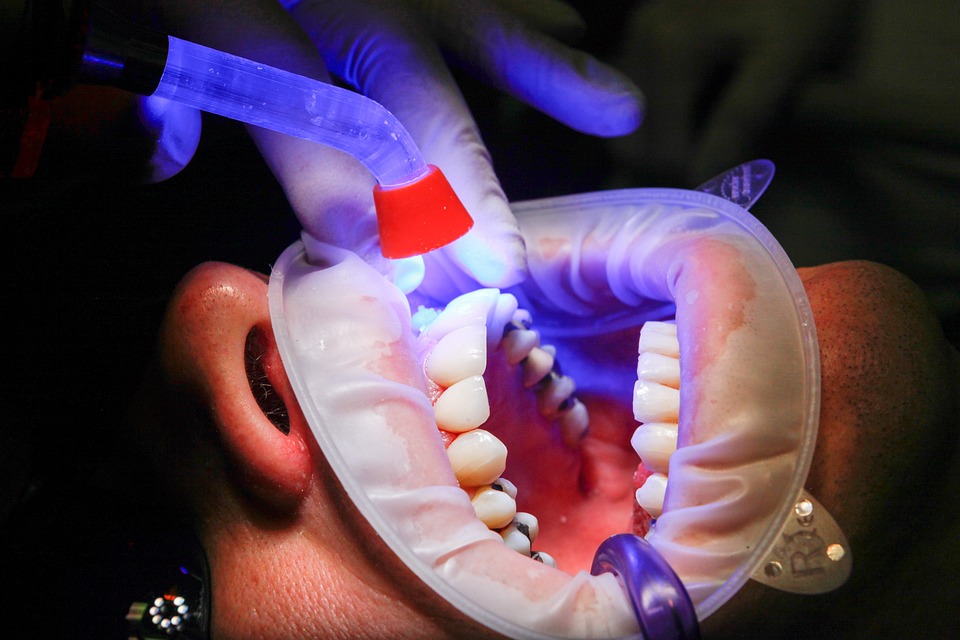Invisalign is one of the most popular orthodontic procedures for dental problems and maintaining good oral health. They are transparent and detachable alternatives to conventional metal braces. Invisalign are custom-made aligners that assist in moving your teeth into the correct alignment.
They are the most reasonable option for dental issues like overcrowding, gaps, or misalignment for children and adults. They are perfect for you if you feel reluctant to use conventional wire-and-bracket braces. You would have to wear these daily for around 22 hours for effective results.
Invisalign help maintains oral health and prevents dental diseases in various ways. Here are some ways they do so:
Prevents Tooth Wear
The permanent loss of tooth structure is known as “tooth wear,” which is uncomfortable and painful and compromises the functions of teeth. It is caused by inadequate tooth contact, leading to severe tooth wear, strain, and even breakage. Overbites or crossbites are more likely to cause abnormal pressure points on some of your teeth. Even though the effects don’t show at once, they do after a while.
You might feel the rough edges of the affected teeth with your tongue as they progressively straighten out or become more angular. By straightening the upper and lower teeth with Invisalign aligners, you may keep a healthy dental structure and allow it to continue functioning as nature intended. Many orthodontics have treatment options for Invisalign at affordable rates. You can look up Invisalign treatment near me and find the preferred one in your area if you experience abrasion in your teeth before it aggravates.
Low Chances Of Temporomandibular joint (TMJ) Disorder
A crooked jaw or a misaligned bite is the prime cause of developing TMJ disorder. When the joint is put under strain, you may experience inflammation. In this disorder, you are more likely to experience headaches, fatigue, or jaw pain, which are not there when your teeth are healthy, and your bite is aligned. TMJ issues can be made worse by excessive teeth grinding or clenching.
Most mild to severe bite issues, such as overbite, underbite, and crossbite, can be resolved with Invisalign. Your teeth put less strain on your TMJ as they progressively shift into normal placements. Invisalign aligners can also help deal with TMD (Temporomandibular Disorders) symptoms by realigning your upper and lower jaws so you can correctly open and close your mouth to chew and speak.
Straightens Teeth
Many people have problems with crooked and tilted teeth, which make their smiles unattractive, and using Invisalign is a good option. Like metal braces, Invisalign uses moderate pressure to move the teeth gradually. The custom aligners assist in shifting your teeth into their correct position, which can cause a little discomfort but is not unpleasant.
It’s essential to wear the aligners for at least 22 hours every day. The ideal time for Invisalign to straighten teeth and move them to their ideal position varies from person to person. However, Invisalign usually takes 9 to 12 months to straighten teeth. For an exact answer, it’s usually best to visit an experienced Invisalign dentist such as Dr. Peter Brawn who can give a more precise answer for you.
Compared to patients with fixed braces, Invisalign users typically have healthier gums. Additionally, they have a lower chance of getting bad breath as you can easily clean and floss your teeth.
Minimize Tooth Decay
According to studies, crowded teeth are more likely to develop cavities than straight teeth. Tight spaces in crooked teeth have a higher risk of tooth decay as they are hard to clean. They even have a considerably higher chance of getting periodontitis and bone loss around their roots.
You may be able to lower your risk of developing cavities as well as tooth loss with the use of Invisalign. By straightening out smaller gaps with Invisalign, you can make them less prone to accumulate bacteria and food particles and easier to clean.
Those with a history of recurrent cavities should know that spending money on Invisalign is just as beneficial as using fluoridated toothpaste and daily flossing. Additionally, it improves the overall look of your smile.
Enhances Speech and Improves Bite
A speech issue is usually because of malocclusion -the presence of crooked or misaligned teeth. You may find that some individuals have longer front teeth, making it difficult for them to speak and hard for you to understand.
Invisalign is a very effective way to improve speech by realigning your teeth so you can pronounce words more accurately. It helps enhance your phonetics and pronunciation. After beginning Invisalign treatment, it may take a few days to adjust to the aligners. The person could speak with a slight lisp before they can form words normally but will eventually find improvement in their speech.
Prevents Periodontal Disease
In periodontal disease, the bacteria build up on the teeth’s surface and below the gum line, creating pockets between the gum and the tooth. The germs gradually eat away at the bones, making holes that enlarge with time, allowing more dangerous bacteria to accumulate there and weaken the bones more.
You can lower your risk of gum infections and strengthen your immune system by getting Invisalign. Any alignment and bite irregularities can be fixed through Invisalign, removing the potential for bacteria to collect in small, difficult-to-reach areas.
Plus, cleaning your mouth gets way easier.
Conclusion
Since Invisalign is the best alternative to braces, many people select it to maintain oral health. It has many advantages, as listed above. From prevention of severe diseases to teeth alignment and better overall appearance, Invisalign help resolve a lot of dental issues and maintain good oral health.
We hope this blog was helpful for you in deciding to get Invisalign and improve your dental health.



